As federal law makers look to loosen the restrictions on THC & cannabis, the state of Georgia has made a huge leap in the opposite direction. Georgia SB 494 that Governor Kemp signed on April 30, 2024, has not only created a bureaucratic nightmare, but it has likely incriminated you, the consumer. The latest version of the Federal Farm Bill was passed on December 20, 2018, and created a legal distinction between hemp and marijuana. The Farm Bill designated hemp as a federally legal commodity so long as it contained less than 0.3% THC Delta-9. This was, and is, the only qualifier. SB 494 and the state of Georgia, have decided to redefine what is hemp and what is marijuana. Quick reminder, “federal laws are the supreme law of the land.” This preemption is not only a huge step backwards for cannabis, but it is also unconstitutional.
One of the many leaps backward that SB 494 has created is a licensing requirement that will affect almost every retail establishment, grocery store, gas station & pharmacy across the state. SB 494 requires that anyone selling any kind of consumable hemp product be required to obtain a Retail Consumable Hemp Establishment License.
2-23-3.(3) ‘Consumable hemp product’ means a hemp product intended to be ingested, absorbed, or inhaled by humans or animals.
Due to their redefining of what a hemp product is, this would include not only products containing cannabinoids, but also any product containing hemp seed oil like many common lotions, shampoos & dietary supplements. Beginning October 1st, selling a tube of lip balm that contains hemp seed oil will require a $250 annual license for every business location in the state.
Unfortunately, we’re just getting started. Assuming your local Wal-Mart obtains 189 hemp retail licenses for each of their storefronts in Georgia at a total cost of $47,250 and you purchase this tube of lip balm, when you walk out of the store you will be required to be able to prove the hemp’s point of origin, its point of delivery including name & address, the kinds of packages and/or total quantity of hemp in the shipment and the date of shipment. If you purchased this lip balm outside of the state, you would still be required to travel with the same bill of lading.
2-23-7.(B) Any person shipping, transporting, or delivering hemp must also carry a bill of lading that includes: (i) Name and address of the owner of the hemp; (ii) Point of origin; (iii) Point of delivery, including name and address; (iv) Kind and quantity of packages or, if in bulk, the total quantity of hemp in the shipment; and (v) Date of shipment.
SB 494 also adulterates all hemp products, so even if Wal-Mart gets their license, you have your proper bill of lading, but happen to share this lip balm with your 20-year-old along the drive, you will still be breaking this new law.
OCGA 16-12-241. (a) It shall be unlawful for any person to knowingly sell, furnish, or cause to be furnished, directly or through another person, any consumable hemp product to any individual under the age of 21 years.
The two areas most near and dear to our hearts are how many children and Veterans we have helped. We know countless stories of parents that have a new life after discovering CBD for their child. These parents of children with autism, ADD, & ADHD have seen their children go from special education classrooms to making As and Bs in accelerated learning environments. To make it illegal for a mother to give CBD to her child is a complete step in the wrong direction.
SB 494 went through a few iterations before being passed by Governor Kemp April 30th, 2024. The Bill was amended in the Senate to add a post decarboxylation clause that will completely remove hemp flower from the marketplace: most notably THCa flower, a highly effective hemp flower most notably used for pain management.
2-23-3.1.(a) For purposes of this chapter, delta-9-THC concentration shall be established by: (1) Identifying the total percentage weight, on a dry weight basis where applicable, of delta-9-THC from a sample that has undergone decarboxylation such that all delta-9-THCA in the sample has been converted to delta-9-THC; or (2) Identifying the sum of the percentage by weight, on a dry weight basis where applicable, of delta-9-THCA multiplied by 0.877 plus the percentage by weight, on a dry weight basis where applicable, of delta-9-THC.
The Bill continues to shoehorn hemp-derived THC and cannabinoids into its own lane: gummies. While this, most likely, was a direct response to fear mongering by local law officials eager to regain their ability to search vehicles upon the faint smell of marijuana, our state policy makers have failed to see the value hemp flower brings to those struggling with pain. Every individual absorbs hemp-derived THC & its cannabinoids differently. Such harsh, political relegation of this segment of the hemp marketplace into this single, ingestible gummy form will greatly affect Georgia citizens’ ability to treat themselves and their families through the “Entourage Effect”. While our local law officials are justified in wanting better protection for children who are purchasing inferior, unregulated hemp products from ghastly individuals in convenience stores, their pressuring of our state policy makers to eliminate hemp flower will, ultimately, have an equally undesirable effect upon other citizens who need quality consumable hemp products purchased from reputable retail environments to help manage their painful conditions. This inevitably will drive consumers back to an unregulated black market with no testing and a higher potential chance to purchase products laced with dangerous street drugs like we’ve most recently seen with Fentanyl.
To further this issue, SB 494 provides the framework for standardizing testing consumable hemp products in lackadaisical fashion. The Office of the Governor’s press release1 on April 30th boldly claimed that SB 494 will protect children from dangerous and misleading marketing and packaging, but state officials failed to include in-depth testing requirements and any actual procedures for testing for the synthetic cannabinoids most likely to be found in inferior gas station consumable hemp products.
1https://gov.georgia.gov/press-releases/2024-04-30/gov-kemp-signs-legislation-supporting-georgias-agriculture-industry
While new legalese within the Bill requires testing of most cannabinoids, it is not a requirement for certificates of analyses to show if they contain any cannabinoids not naturally found in the plant like the “Spice” that surfaced back in the early 2010’s. By choosing to provide legislature that, instead, focuses on preempting the 2018 Farm Bill by redefining federal law and a new zero tolerance policy towards hemp flower, our state representatives have shown that their latest attempt at policy making is more focused on protecting the interests of their lobbyists and giving back local police the blanket authority to bypass citizens’ 4th amendment right to unnecessary search & seizure during routine traffic stops. Legislation aimed at “protecting children” wouldn’t have been passed in the 23rd hour by our state Government & most certainly should provide more in-depth procedure surrounding the actual testing of consumable hemp products prior to their wholesale purchase by retail outlets.
In some strange, asinine plan to keep products from being attractive to children, Georgia law makers have determined that the only way you will get your CBD is in the form of a gummy.
2-23-9.2.(c)(2) No consumable hemp product shall be sold or otherwise distributed in this state if such product constitutes or is a component of: (A) A food product; or
Our lawmakers seem to feel this gelatinous substance has no attraction to children.
2-23-9.2.(c)(1)(B) ‘Gummy’ means a gelatinous substance in the form of a cube, sphere, prismatoid, ovoid, or other shape that is designed for human ingestion.
Ingestible hemp products in any other form or food type or even product that can be added to food will not be allowed. I’m not sure much foresight was given to those consumers with diabetes & other sugar related concerns. As we interpret this, even CBD capsules would be banned.
As a final straw, to highlight the incompetence and ignorance of our law makers, SB 494 put a clause that no hemp product can be labeled as “low THC” oil. Low THC oil, as defined by the state, is their 5% THC oil that only medical marijuana patients can receive. These patients are allowed to possess up to 20 ounces of this low THC oil. What our law makers don’t seem to understand is that 20 ounces of their purported “low THC” oil contains 28,350mg of THC Delta-9, equating to 2,835 standard medical doses for one patient. This is enough Delta-9 to get the entire population of Helen, GA high for 5 days.
The 2018 Federal Farm Bill legalized cannabis federally & we knew it opened the door to potential problems. At Alpine Dispensary, we have always taken the high road selling only the safest, lab tested, and best quality consumable hemp product available. This Bill does nothing to address the problems that other companies have exploited, like most of that gas station garbage you see every day. This Bill will ban almost 90% of the products we carry. If you’re reading this, it will likely incriminate you. It has created a bureaucratic nightmare that we doubt the state of Georgia will ever be able to facilitate. Arkansas’ state legislature recently passed similar legislation that has been halted by a federal injunction in a current lawsuit from several hemp companies against the state. The federal judge not only halted this bill but made it very clear that the federal definition of hemp cannot be further amended by any state. We are likely looking at a similar course of action here and hope that you will help us join in the fight to stop our ridiculous legislature from destroying an industry that has helped so many.
Currently we are anxiously awaiting any form of response from the Department of Agriculture for a review of our retail permits that we have submitted. While we appreciate the 90 day grace period allowed while retail permits have been submitted, we would like to get more specifics as to what the State of Georgia requires with labeling, packaging, testing and more.
In summary, Georgia is now technically a fully synthetic cannabinoid state as of October 1st and denies the raw phytocannabinoids that our customers have found naturally in the flower. Our home state has made itself an island in the southeast given that the Cannabis plant material is available in every state around us. Results from this bill forces citizens to by flower material from the black market as well as literally sending money to other states that offer what Georgia does not. More expected results will be an increase of arrests for possession of Hemp plant material, less tax revenue brought in to each county that has lost the retail businesses that provided the plant material, an increase in unemployment due to Hemp retail brick and mortar establishments closing down and laying off their staff, lawsuits against the Department of Agriculture wasting taxpayers money and officials time, among many other unfortunate repercussions.
Written and researched by:
The Alpine Dispensary Team
Eddie Askeldsen, CEO
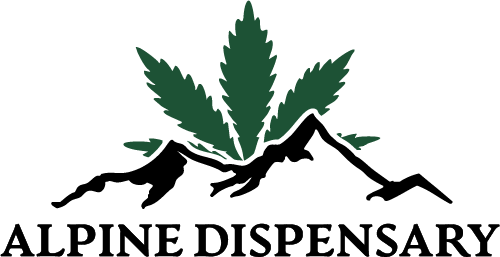

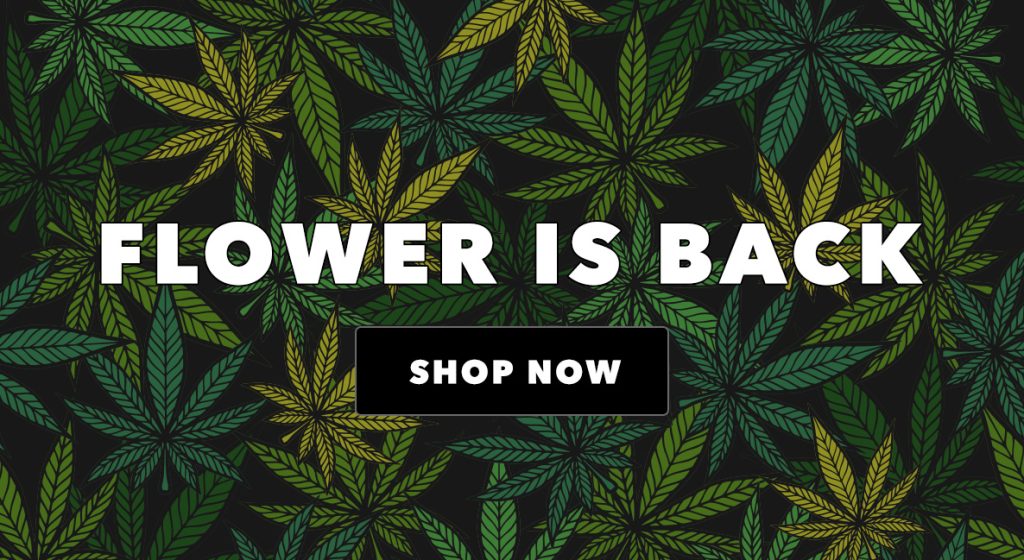
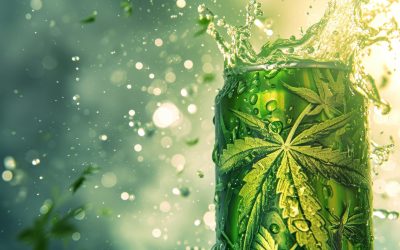
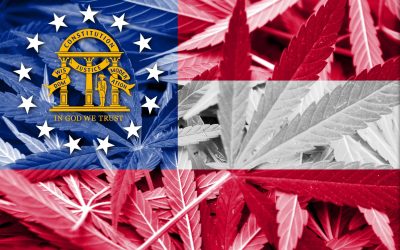
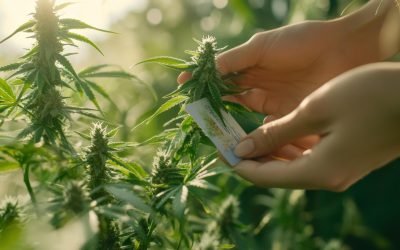
The Delta 9 gummies are the best, great flavors and definitely potent. I cut them in half and help me relax with an outstanding restful night sleep. I most definitely recommend these gummies…
The Delta 9 gummies are Great, best for relaxation and a good night sleep. Also super fast shipping. Thank you!